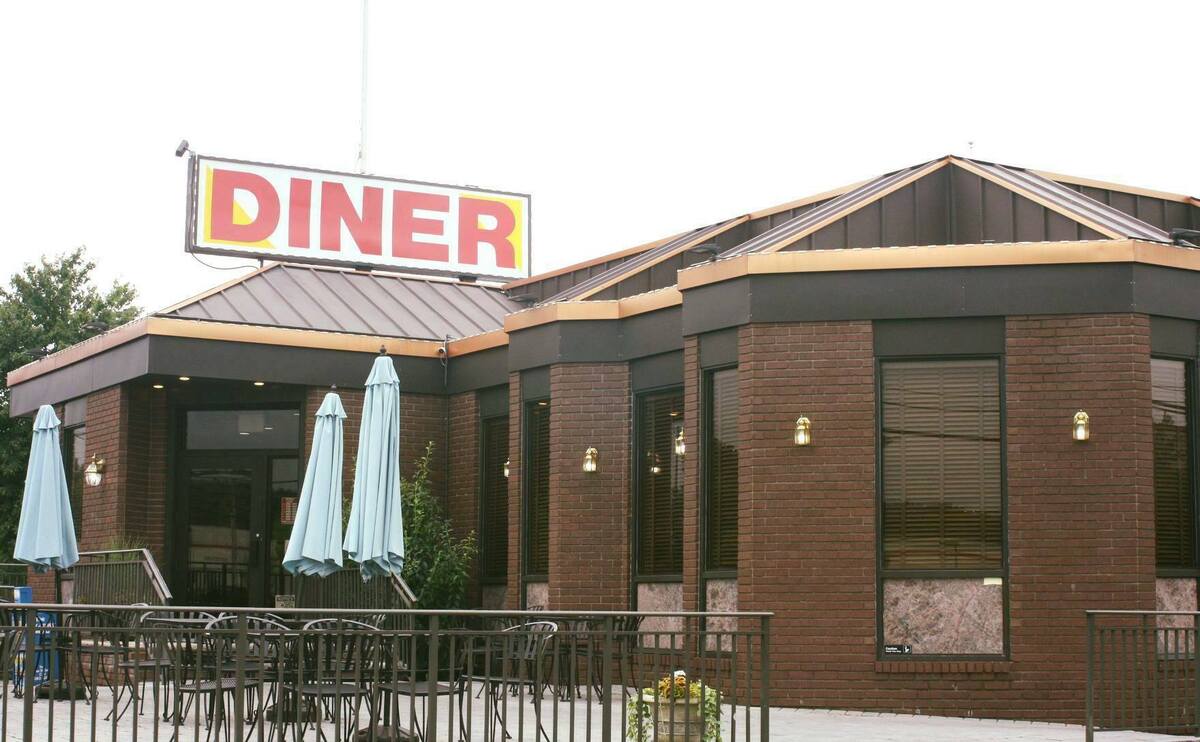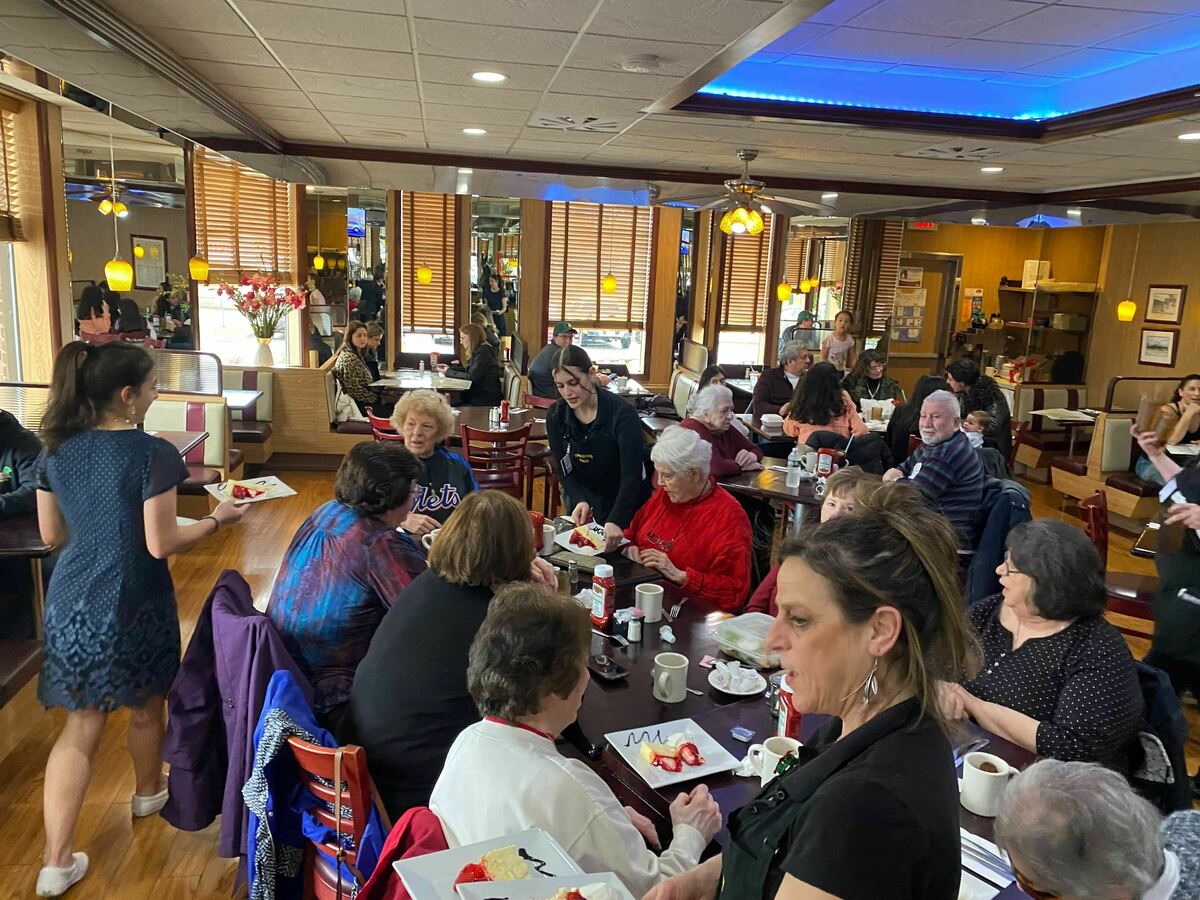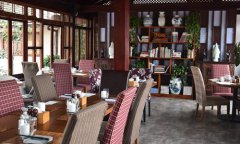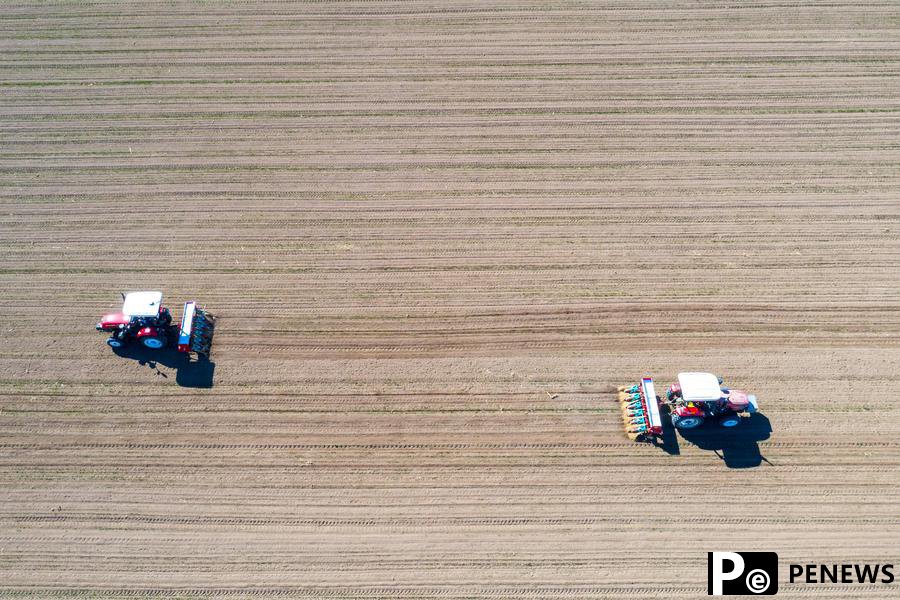
Enlarge this image
New Jersey is known as the diner capital of the world. But over the past decade, around 150 diners have closed in the state. The ones that remain have made big changes to survive. Peter Sedereas hide caption
toggle caption Peter Sedereas
New Jersey is known as the diner capital of the world. But over the past decade, around 150 diners have closed in the state. The ones that remain have made big changes to survive.
Peter SedereasMany Americans love diners, but in New Jersey, the love of diners is ingrained in the state's culture. New Jersey is considered by many to be the diner capital of the world.
An unofficial New Jersey diner coalition estimates that there are around 450 diners in the state, more per capita than any other state in the United States.
"I'm sure people in other states love their diners, too. But it's really more of our identity and our culture here in New Jersey," said Michael Gabriele, author of The History of Diners in New Jersey. "Diners have become such an important part of the culture, our economy, our food business, of our mythology."
Gabriele said that while diners didn't begin in New Jersey, the state quickly became its spiritual home. The origins of the diner go back to the 1870s in Providence, Rhode Island.
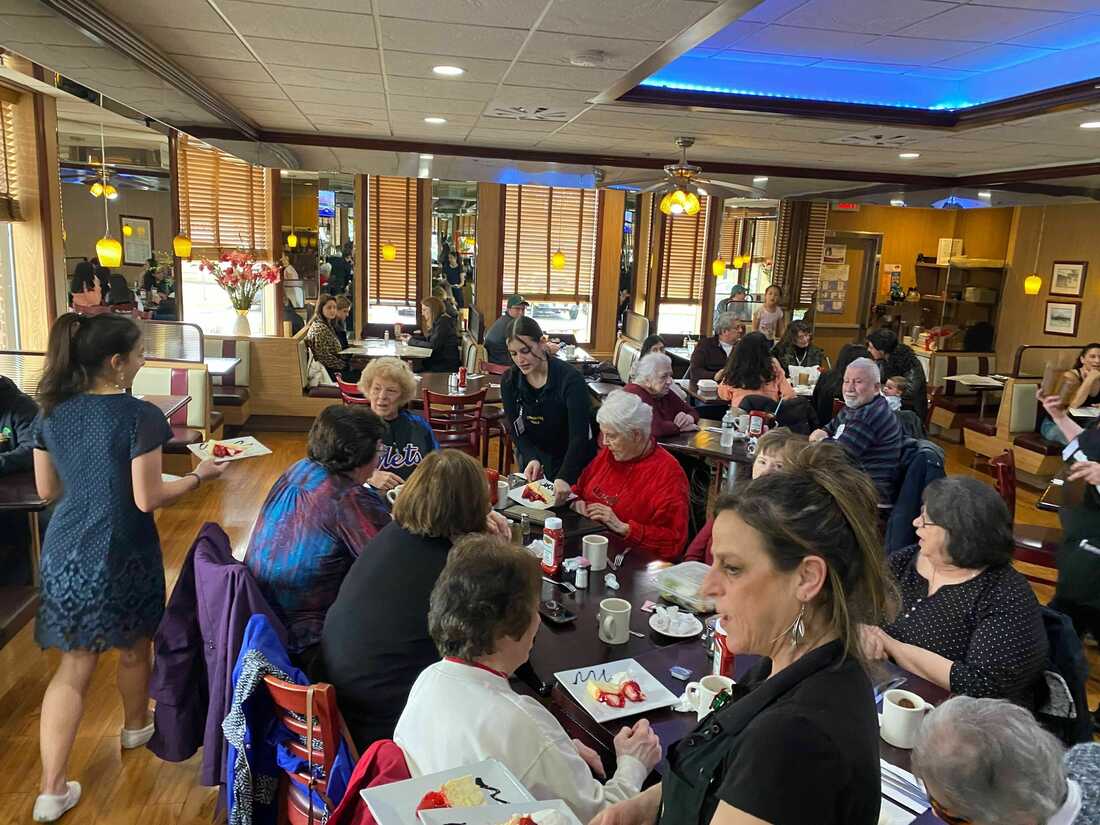
Enlarge this image
Inside Townsquare Diner in Wharton, New Jersey in 2024. Peter Sedereas/Peter Sedereas hide caption
toggle caption Peter Sedereas/Peter Sedereas
Inside Townsquare Diner in Wharton, New Jersey in 2024.
Peter Sedereas/Peter Sedereas"There was a man there [Walter Scott] who had the idea of picking up a horse-drawn wagon. He realized that around eight at night, all the places to eat would be closed. So people getting off the train... there was nowhere for them to go. So he had this idea he was going to load up a wagon and have hard-boiled eggs, sandwiches, coffee, and cookies." said Gabriele.
Gabriele explains that lunch wagon is the ancestral precursor to today's diners and food trucks. Diners have been around New Jersey in their lunch wagon form since the early 1900s. There are a few reasons they spread especially quickly there.
He says in the early years of the 20th century, New Jersey had some of the best infrastructure in the U.S., and it was a source of pride. The highway system, for example, was developed earlier than in many other states.
"Diners and cars became very popular in the 1920s and 30s. And then especially in the post-World War two years, everybody wanted a car. Now it was easier to get around the state. After an hour or two, everybody would start saying they were hungry. And so you'd stop at a diner," said Gabriele.
People wanted good food, not fast food, according to Gabriele. They wanted good services and reasonable prices. And diners were the place where you could get a good meal of wholesome American food like burgers, soup, and milkshakes.
Diners are typically located right off the highway, making it a convenient stop for people driving. But it wasn't just the developed road systems that made diners in New Jersey take off.
"New Jersey was the diner manufacturing capital of the world. There were other diner builders in Massachusetts, New York, and in the Midwest. But New Jersey had the most," said Gabriele. "The fact that we had so many diner builders really sparked the great number of diners we have here in New Jersey starting back in the 1910s,"
Despite diners being such a big part of New Jersey culture, many are closing. An unofficial coalition of New Jersey diners predicts that 10 years ago, there were around 600 diners in the state. Now that unofficial coalition says that number there are around 450.
Peter Sedereas has owned Town Square Diner in Wharton, New Jersey since 1987. He also leads that unofficial coalition of New Jersey diners that was established during the pandemic. It's made up of over 25 of his cousins, who all own diners. Altogether, they own around 50 diners in New Jersey.
Sedereas says his business is doing better than 20 years ago and that people are still going to diners. He lists a few reasons why so many diners in New Jersey are closing.
